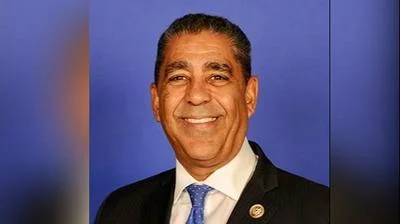Rabbi Dr. Ari Berman, President and Rosh Yeshiva | Yeshiva University
Rabbi Dr. Ari Berman, President and Rosh Yeshiva | Yeshiva University
In September 2024, Yeshiva University hosted a three-part virtual series on the upcoming presidential election. This event was a collaborative effort between the Rabbi Lord Jonathan Sacks-Herenstein Center for Values and Leadership, the Zahava and Moshael Straus Center for Torah and Western Thought, and the Lieberman-Mitzner Center for Public Service and Advocacy. The series featured Dr. Tevi Troy, Senior Scholar and Impact Office Director at the Straus Center, in conversation with Dr. Sharon Poczter (director of the Lieberman Center), Dr. Erica Brown (director of the Sacks Center), and Rabbi Dr. Dov Lerner, a faculty member of the Straus Center.
The first event focused on presidential debates' impact on electoral outcomes. Dr. Troy, a distinguished presidential historian and author of five books including "The Power and the Money," provided an overview of this phenomenon. He remarked that debates are critical moments when candidates reveal their true selves under pressure. For example, Ronald Reagan’s age comment in 1984 helped ensure his victory over Walter Mondale. He also noted that debates frequently uncover candidates' core competencies and vulnerabilities in real time.
The second event delved into leadership transitions with Dr. Brown and Dr. Troy examining contemporary political transitions alongside lessons from the Hebrew Bible, such as Joshua’s succession of Moses. They emphasized both emotional and practical challenges during power transitions, especially when leaders must let go. The session also addressed modern corporate transitions by comparing them to political ones, using Disney’s CEO transitions as a case study.
In the final event, Rabbi Lerner and Dr. Troy explored whether religious values can guide voting decisions. They discussed Jewish voting patterns in the U.S., particularly noting the growing political divide between Orthodox and non-Orthodox communities. For instance, President Bush won 70% of the Orthodox vote in 2004 due to his strong pro-Israel stance while overall Jewish votes have tended to lean Democratic.
Rabbi Lerner highlighted that “the Torah is infused with political values but is very sparing on policy.” This allows rabbis to emphasize core moral values like justice and charity without aligning with specific political platforms.
Throughout these events, speakers stressed healthy political discourse's importance, stable leadership transitions, and religious values' role in shaping public life ahead of the upcoming presidential election.






 Alerts Sign-up
Alerts Sign-up